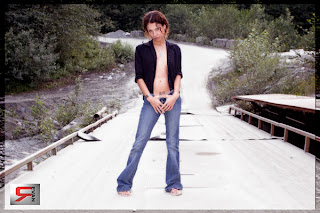I love paramedics.
Paramedics help people; they go into unpredictable situations and must deal with some nasty stuff; and they are generally very well-natured.
I've never seen an angry 'medic — even through this seemingly-endless standstill with the BC government.
According to the Ambulance Paramedics of British Columbia, CUPE Local 873, the "strike" they are currently involved in (although they can't technically picket or walk out because they are considered an essential service) is not just over wages, it is a culmination of factors: community paramedic shortages; working conditions; recruitment and retainment; and compensation parity.
The issue that average Joes have heard about most is the $2 on-call wage. From what I understand, in general, paramedics must work part-time at this rate for years before nabbing a full-time position.
Before I heard this, I was seriously considering the career for myself. As a volunteer member of 100 Mile House Fire-Rescue, I've found the "helping people" part of the job the most enjoyable.
Because I'm a tad on the small side — not very tall, not all that buff — I sometimes feel limited in my duties at the hall. Becoming a paramedic seemed like a seriously good path for me to follow and I would be fine with part-time to continue my other full-time career with the news.
I've been fortunate and have not needed ambulance services in an emergency; but I have had experience with their assistance on fire scenes: after so long with a breathing apparatus on (mask and air tank), firefighters must go to "re-hab" where their vitals are checked, their bodies re-hydrated and then vitals re-checked by the ambulance crew.
The paramedics I have dealt with in these situations have been great, supportive and professional.
Situations such as fire scenes have inspired me to look into becoming a paramedic; but the current situation with the government is, obviously, a big turn off.
I am not going to pretend I understand the situation fully but, judging from the website www.saveourparamedics.com, a big issue for the union is wage parity.
"Side by side, paramedics respond to emergencies with our colleagues from the police and fire departments in all corners of the province. We are on the frontline 24 hours a day, seven days a week, putting our lives on the line.
"BC Ambulance Paramedics have suffered the same drastic increases in call volumes, work load, retirement attrition and costs of living as other BC emergency services, yet have been allowed to fall far behind in compensations."
The union says on the website that they are looking for wage parity not only with other provinces but with BC police and firefighters.
Yes, paramedics should be in line with other provinces; but should they be earning the same compensation as police and fire?
From what I understand, paramedics have a list of limitations that hinder them from performing the duties police and fire are paid to do. Correct me if I'm wrong, please, but, in most situations, ambulance attendants must hang back while fire crews extract patients from vehicles, bring them up from embankments or lift them onto gurneys.
In no way am I suggesting paramedics are any less valuable than other emergency services; yes, the dedicated workers risk their lives — and lose them, as often sadly evidenced in the news — but if they are not allowed to do as much as other emergency workers there is a justified pay difference.
It's the pager call-out rate and wage parity with other provinces that I think the union should focus on. If wages are corrected, the recruitment and retainment problem will, most likely, solve itself.
However, the longer this drags on, the more likely people (like me, who has a real interest in becoming a paramedic) will be scared away.
"The Thompson-Okanagan-Cariboo are hard hit by the shortages of both ambulance resources and trained paramedics," states the union on www.saveourparamedics.com.
"Rural and remote stations are increasingly unable to staff their ambulances as it has become very difficult to attract new employees, partially due to the high cost of paramedic training in BC. It is also difficult to retain staff in rural and remote areas as the $2 an hour pager pay is not competitive compensation in today’s economy."
It is hard to justify spending over $5,000 to become a primary care paramedic when I'd be on a pager call-out wage of $2 for up to five years following.
As I am on the outside of this issue looking in, I would welcome feedback to clarify the facts.
But, from what I can see, the BC government needs to stop wasting money fighting the union in court and focus on fixing the BC paramedic situation before car crash victims have to hitchhike to the hospital and patients die in their homes while waiting for help.

